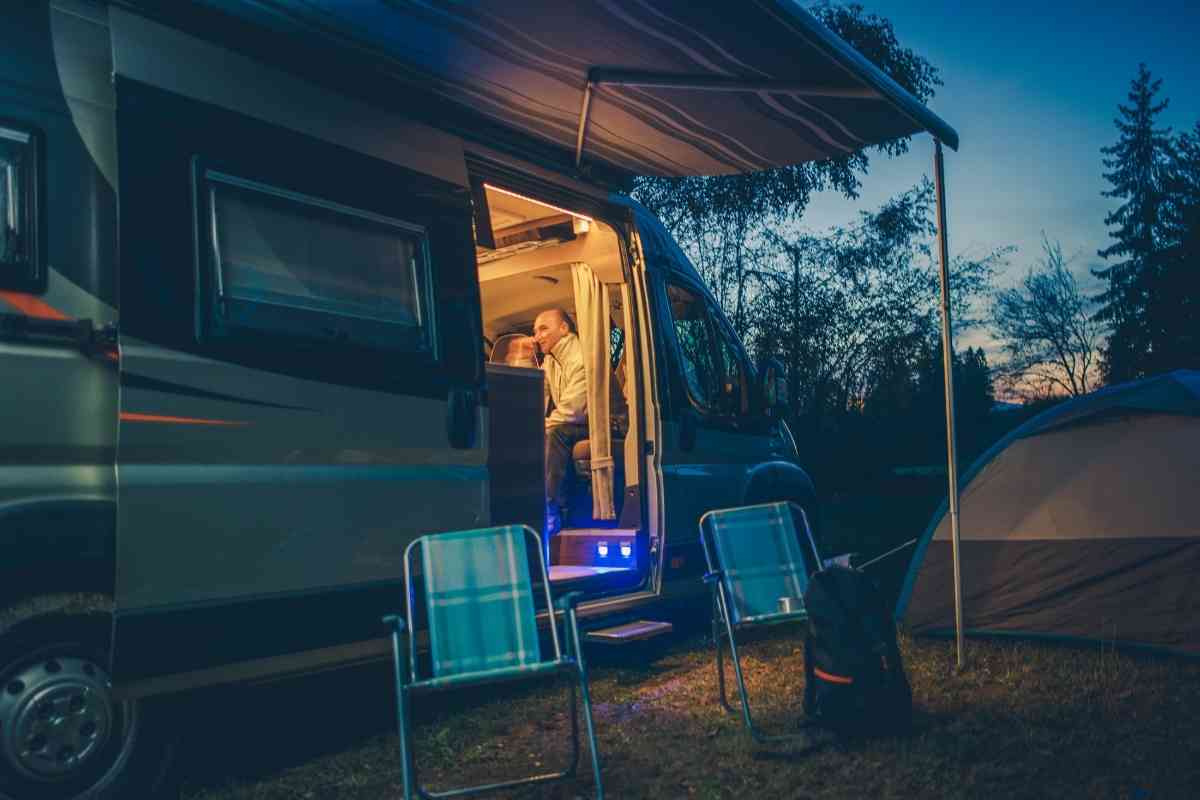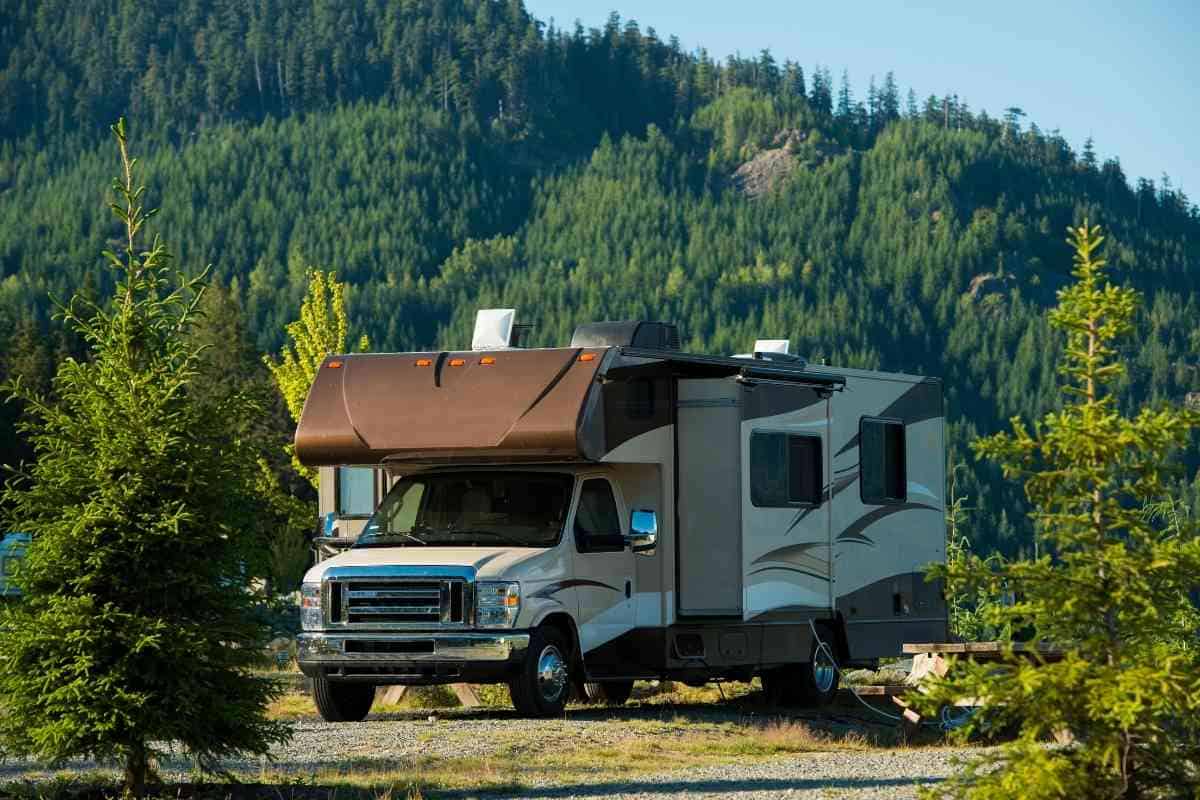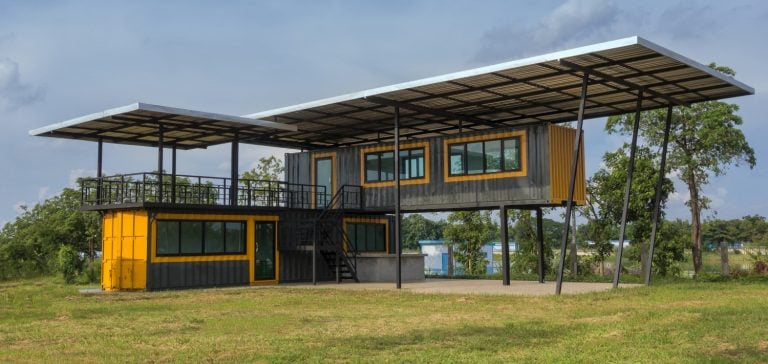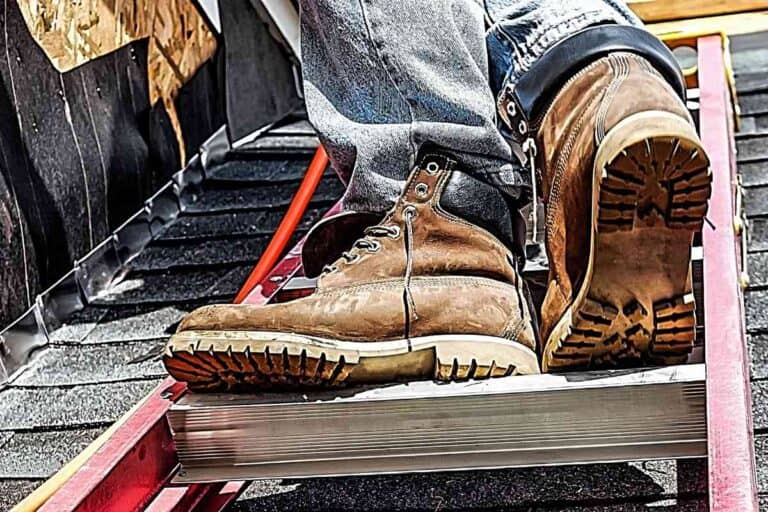Why Does My RV Breaker Keep Tripping? A 10-Step Guide
Why does my RV breaker keep tripping? If an RV breaker keeps tripping over and over, what is wrong? A breaker that keeps tripping can be very frustrating if you don’t know why this is happening or how to fix the problem. It can happen at the campground, on the road, or anywhere else. What causes it, and what can you do about it?

Why does the breaker in my RV keep on tripping?
A breaker trips in an RV if there is too much electricity. You might have a short circuit or another problem with your internal electric system, or you might be using too many appliances at once. There could also be a problem with your circuit breakers that is making them shut down your power unnecessarily.
Circuit breakers and fuses are there for the sake of safety – without them, a short circuit could cause a fire. They shut down your power whenever the electric current becomes dangerously strong. Using damaged cords, appliances, or plugs can cause short circuits.
Sometimes, I have tripped breakers simply by using too much power – for example using the microwave while running the air conditioning was too much. Other times, there was an actual problem with my RV’s electrical system that needed to be fixed.
What Are Breakers and Why Do They Trip?
Circuit breakers are necessary. They protect your home or RV from damage. Without a circuit breaker cutting off your power, an electrical problem could quickly get very serious.
Sometimes, an electrical problem can lead to thousands of dollars in damage to your home or RV’s electrical system. At worst, it could cause a fire that could lead to injury, death, or complete destruction of your RV.
A circuit breaker is a vital piece of safety equipment that reduces the risk of this happening by shutting off the power when something goes wrong.
Circuit breakers trip when the flow of electricity is too high. When something like a short circuit happens, the flow of electricity suddenly increases, reaching dangerous levels. This trips your circuit breaker and shuts down the electricity before it can start a fire.
How Are Breakers Different From Fuses?
Both fuses and breakers disable your electricity to prevent a fire if the current becomes too strong. How are the two different?
While circuit breakers can be switched on again after they trip, fuses cannot. Fuses break when they shut down your power, and you have to replace them. Fuses do have some advantages, such as:
- A fuse is cheaper than a circuit breaker
- Fuses shut down your power faster – in 1/500th of a second, circuit breakers take longer
- Fuses are very easy to install
- Fuse boxes are small compared to breaker boxes
However, I still recommend circuit breakers over fuses. They are reusable, and in many ways offer better protection than fuses. You can also turn power to parts of your RV off easily if you have an electrical panel instead of a fuse box.
Hot Wires Should not Touch Neutral Wires

There are three types of wires in your home: hot wires, neutral wires, and ground wires. Normally, hot wires and neutral wires will never touch each other. If they do, the electric current will suddenly be very strong because there is too little resistance.
This excessively high electric current could electrocute someone or create a dangerous amount of heat. A circuit breaker does not make your home or RV completely safe from electrical fires, but it does work well to prevent them.
What Happens When a Circuit Breaker Trips?
The power will go out, so you will immediately notice. The power might only go out in a specific area, and not everywhere.
When you check your RV’s electrical panel, you will notice that one of the switches is no longer on and is between on and off. This switch controls the circuit that shut down because the current was too strong.
Some people don’t know enough about their circuit breakers – they might not know which breaker controls power to which part of their RV. You should test the fuses to find out and label them. You should also not have to move a fridge or a heavy cabinet to access your RV’s electrical panel.
How to Reset a Breaker
Resetting a breaker is easy – you simply turn the switch off and then turn the switch on again. There is a bit of a possibility of sparks flying out of the control panel when you do this, so you should wear safety goggles, or at least close your eyes.
You should have a couple of flashlights in your RV and know where to find them. You might put a flashlight right beside the fuse box so that you can see which of the breakers needs to be turned on again.
You might have a cell phone with a flashlight, but you should have an actual flashlight as a backup. The power might go out when your cell phone has little or no power left.
What is a Short Circuit?
Short circuits are more dangerous than overloaded circuits because they are more likely to create very high temperatures and start fires. Usually, this will trip a breaker or blow a fuse – it is not very common for these safety features to fail.
What Causes Short Circuits?
A lot of the time, a short circuit happens because of damaged wires. Animals including rats and mice chew on wires sometimes. This can do enough damage that a hot wire touches a neutral wire and creates a short circuit.
Any part of your electrical system might also be faulty. You might have a bad plug, switch, appliance, or cord somewhere in your house. Unlike circuit overloads, short circuits often create sparks or smoke.
If you are repeatedly getting short circuits in your RV, you could try fixing or replacing an appliance that seems to cause this. One of your appliances might be damaged in a way that causes short circuits. Any of your power outlets or cords could also be damaged.
What is a Circuit Overload?
A circuit overload is very different from a short circuit. A short circuit often happens when there is a physical problem, such as wires getting wet or damaged. A circuit overload happens when you simply use too much power.
A circuit can only handle a certain number of amps without overloading. If you plug a few different appliances into the same circuit, you might trigger an overload. A circuit breaker will usually trip before this overload becomes dangerous.
If your RV circuit breakers keep tripping, it could be because you are repeatedly overloading a circuit. To prevent this, try any of the following:
- Use a different circuit. If you know a little about how the electricity in your RV works, you can try a different power outlet that is not part of the same circuit. More than one power outlet can be part of the same circuit.
- Try leaving your breaker off for a few minutes before turning it on again.
- Try plugging one appliance in at a time. See what appliances your circuit can handle.
- Look up how much power each of your appliances uses and compare it to how much power your RV circuits can handle.
Physical Problems May Also Cause Circuit Overload
You might have loose wires, corroded wires, or loose connections. Sometimes, there is enough wrong with your electrical system that you need to make potentially expensive repairs. You might have to hire an electrician to replace a lot of your RV’s electrical system.
More likely, expensive repairs won’t be necessary. There is probably a small problem, such as a single damaged wire, that is the source of your troubles. After a small fix, your RV’s electrical system will work as good as new again.
You Might Have a Bad Circuit Breaker
If one of your circuit breakers keeps on tripping, it is possible that your circuit breaker and not any of your appliances is faulty. Your circuit breaker might be damaged, or it might not have been wired correctly when it was installed. If your appliances work perfectly well on other circuits, your circuit breaker may need replacing.
Your circuit breaker might be damaged if:
- No one has maintained your electric panel in a decade
- There are scorch marks around your breaker
- Your breaker is hot
- There is a burning smell when you open up your circuit breaker box
Call an Electrician
While it is great to know how to do a lot of repairs yourself, electrical work can be dangerous. You might be better off leaving electrical work to the professionals. If you do the work yourself, be as safe as possible:
- Be very careful when repairing cords
- Don’t plug in any kind of electric machine that was wet without having an electrician inspect it first
- Be careful in damp locations
- Turn off the power in your home/RV entirely when doing electrical work
- Use insulated gloves and wear goggles
- Beware of frayed cords and damaged plugs
Another important safety tip is to always ground your RV properly when you are charging it up. You also need to know the difference between 30-amp plugs and 50-amp plugs at a campground.


![Are Aspen Trees Good For Log Cabins? [And What Is Better?]](https://freedomresidence.com/wp-content/uploads/2022/05/Are-Aspen-Trees-Good-For-Log-Cabins-768x512.jpg)



